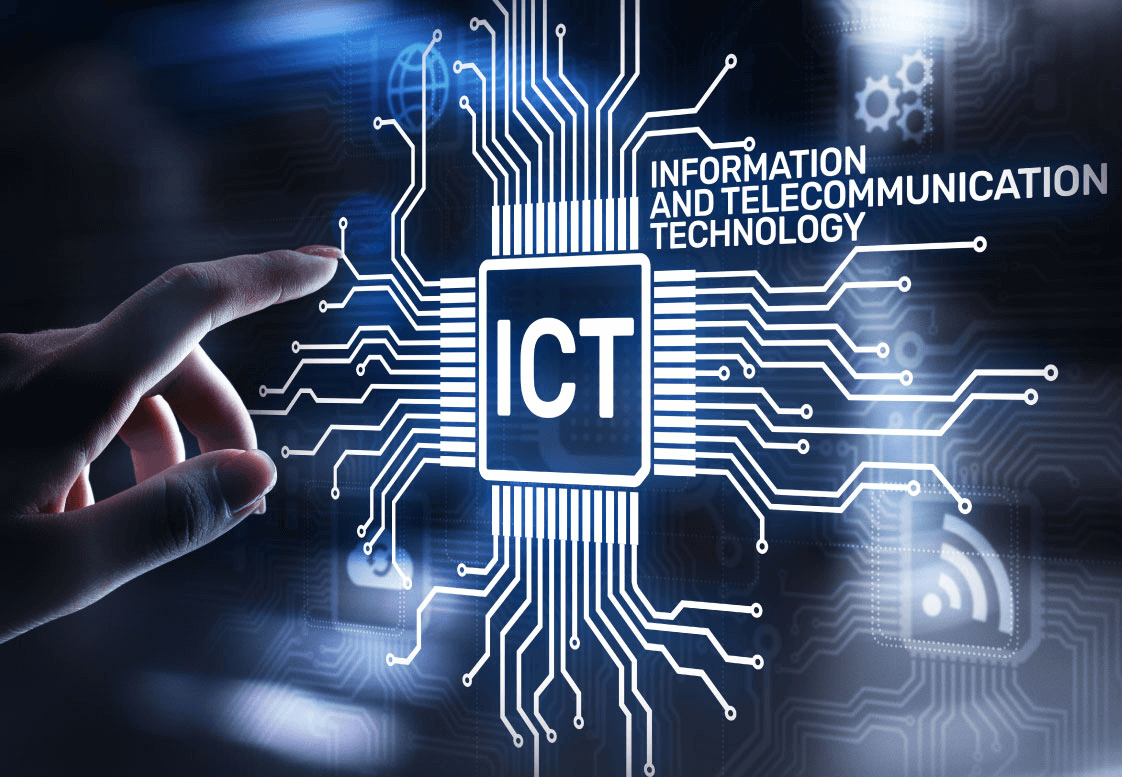
IN the rapidly evolving global economy, information and communication technology (ICT) has become a driving force for economic growth and development.
Zimbabwe, like many developing nations, has recognised the crucial role that ICT plays in fostering innovation, improving productivity, and creating new opportunities. As the country strives to revitalise its economy and address the challenges faced by its education system, there is a growing need to bridge the digital divide and ensure that students have access to the tools and skills necessary to thrive in the 21st century.
Recognising ICT as Zimbabwe's economic driver, Zimbabwe has made significant strides in embracing its transformative power. The sector has contributed to the diversification of industries and the creation of new avenues for growth and employment.
According to the Postal and Telecommunications Regulatory Authority of Zimbabwe (Potraz), the ICT industry contributed approximately 6,5% to the country's GDP in 2022, up from 4,2% in 2018.
This growth has been driven by the increasing penetration of mobile and internet services, the expansion of e-commerce platforms, and the adoption of digital technologies across various sectors, including agriculture, healthcare, and financial services. The government has also taken proactive measures to accelerate the development of the ICT sector.
It has implemented the ICT Policy and established the Zimbabwe Digital Economy and the Financial Inclusion Strategy.
These initiatives aim to promote digital transformation, enhance internet connectivity, and foster the growth of technology-based enterprises.
Challenges
- Mavhunga puts DeMbare into Chibuku quarterfinals
- Bulls to charge into Zimbabwe gold stocks
- Ndiraya concerned as goals dry up
- Letters: How solar power is transforming African farms
Keep Reading
The country's education system has struggled to keep pace with technological advancements.
Many primary and secondary schools, particularly in rural and underserved areas, lack the necessary infrastructure and resources to integrate ICT into their curriculums.
The Ministry of Primary and Secondary Education says about 30% of public schools have access to reliable internet connectivity, and less than 20% have functional computer labs or digital learning resources.
This digital divide has resulted in a significant skills gap, where many students graduate without the necessary digital literacy and technical skills.
Lack of ICT integration in schools limits the opportunities available to students and hinder the country's efforts to develop a highly skilled, technology-savvy workforce. This, in turn, impedes long-term growth and competitiveness of the economy.
The role of business, diaspora
Addressing ICT challenges in Zimbabwe's education system will require a coordinated and multifaceted effort involving the government, private sector, and civil society.
One untapped resource is the Zimbabwean business community, both within the country and in the diaspora.
Business executives, many of whom have experienced the transformative power of ICT, possess the knowledge, resources, and networks to make a significant impact on the education system.
By leveraging their expertise and connections, they can help bridge the digital divide and ensure students across Zimbabwe have access to the tools and skills necessary to thrive in the digital age.
Equipping schools with ICT resources
Business can contribute to the ICT transformation by directly equipping schools with the necessary infrastructure and resources.
This can include donation of computers, laptops, tablets, and other digital devices.
They can organise donations or directly contribute old but functional devices to schools in need.
This can help address the lack of accessible technology in many classrooms.
High-speed internet connectivity
Business executives can help ensure that schools, particularly in rural and underserved areas, have reliable and affordable access to high-speed internet, enabling students to fully leverage digital resources and online learning platforms.
Computer labs and digital learning spaces
By funding the construction or renovation of dedicated computer labs and digital learning spaces within schools, business leaders can create hubs of technological innovation and skills development.
Educational software, digital learning resources
Identifying and procuring relevant educational software, e-learning platforms, and digital learning materials can enhance the quality and effectiveness of ICT-based instruction in schools.
Technical support and maintenance
Business can assist schools in maintaining and servicing their ICT equipment, ensuring that the technological infrastructure remains functional and up-to-date.
In addition to the physical provision of ICT resources, business and the Zimbabwean diaspora can also contribute to the development of ICT-focused curricula and the training of teachers to effectively integrate technology into their classrooms.
Curriculum development
By collaborating with the Ministry of Primary and Secondary Education and educational institutions, business leaders can provide input on the design and implementation of ICT-focused curricula that align with the skills and competencies required in the modern workforce.
Teacher training and capacity building
Businesses can sponsor or organise professional development programmes that equip teachers with the knowledge and skills to effectively utilise ICT tools and incorporate digital learning strategies into their teaching practices.
Mentorship and internship programmes
Establishing internship and mentorship programmes that connect students with professionals in the ICT industry can help inspire and guide young learners towards technology-driven career paths.
Partnerships with educational institutions
Business executives can collaborate with universities, technical colleges, and vocational training centres to develop specialised ICT-focused programmes and pathways that bridge the gap between education and industry.
The Zimbabwean diaspora, with its vast global reach and diverse professional experiences, can play a crucial role in the ICT transformation of the country's education system.
By tapping into the knowledge, networks, and resources of the diaspora, business leaders can amplify their impact and create a more sustainable model for ICT integration in schools.
Diaspora knowledge and expertise
Members of the Zimbabwean diaspora, who have expertise in ICT, education, or related fields can share their knowledge and insights with schools, teachers, and policymakers in Zimbabwe, helping to inform the development of effective ICT-focused programmes and initiatives.
Diaspora-led funding and resource mobilisation
Diaspora communities can organise fundraising campaigns and mobilise resources to support the provision of ICT equipment, infrastructure, and teacher training programmes in Zimbabwean schools.
Diaspora-school partnerships
Businesses and individuals in the diaspora can establish direct partnerships with specific schools, providing ongoing support, mentorship, and collaborative opportunities for students and teachers.
Diaspora volunteer and exchange programmes
Encouraging the Zimbabwean diaspora to participate in volunteer programmes or short-term teaching exchanges can help strengthen the capacity of local teachers and expose students to diverse perspectives and experiences in the ICT field.
The contribution of business executives and the Zimbabwean diaspora can be a game-changer in the quest to integrate ICT into the country's education system.
By leveraging their expertise, resources, and networks, they can help bridge the digital divide and empower the next generation of Zimbabwean innovators, entrepreneurs, and technology professionals.
However, the success of this endeavour will hinge on the ability to foster a collaborative and coordinated approach, where the government, private sector, and civil society organisations work in tandem to address the multifaceted challenges facing the education system.
Through strategic partnerships, innovative funding models, and a shared commitment to the advancement of Zimbabwe's technological capabilities, the business community and the diaspora can play a pivotal role in shaping the future of the country's education landscape. By equipping schools with the necessary ICT resources and supporting the development of ICT-focused curricula and teacher training programmes, they can help unlock the immense potential of Zimbabwe's youth and pave way for a more prosperous and technologically-driven future.
- Mutisi is the CEO of Hansole Investments (Pvt) Ltd and the current chairperson of Zimbabwe Information & Communication Technology, a division of Zimbabwe Institution for Engineers. He writes in his personal capacity. — +263 772 278 161 or e-mail chair@zict.org.zw










